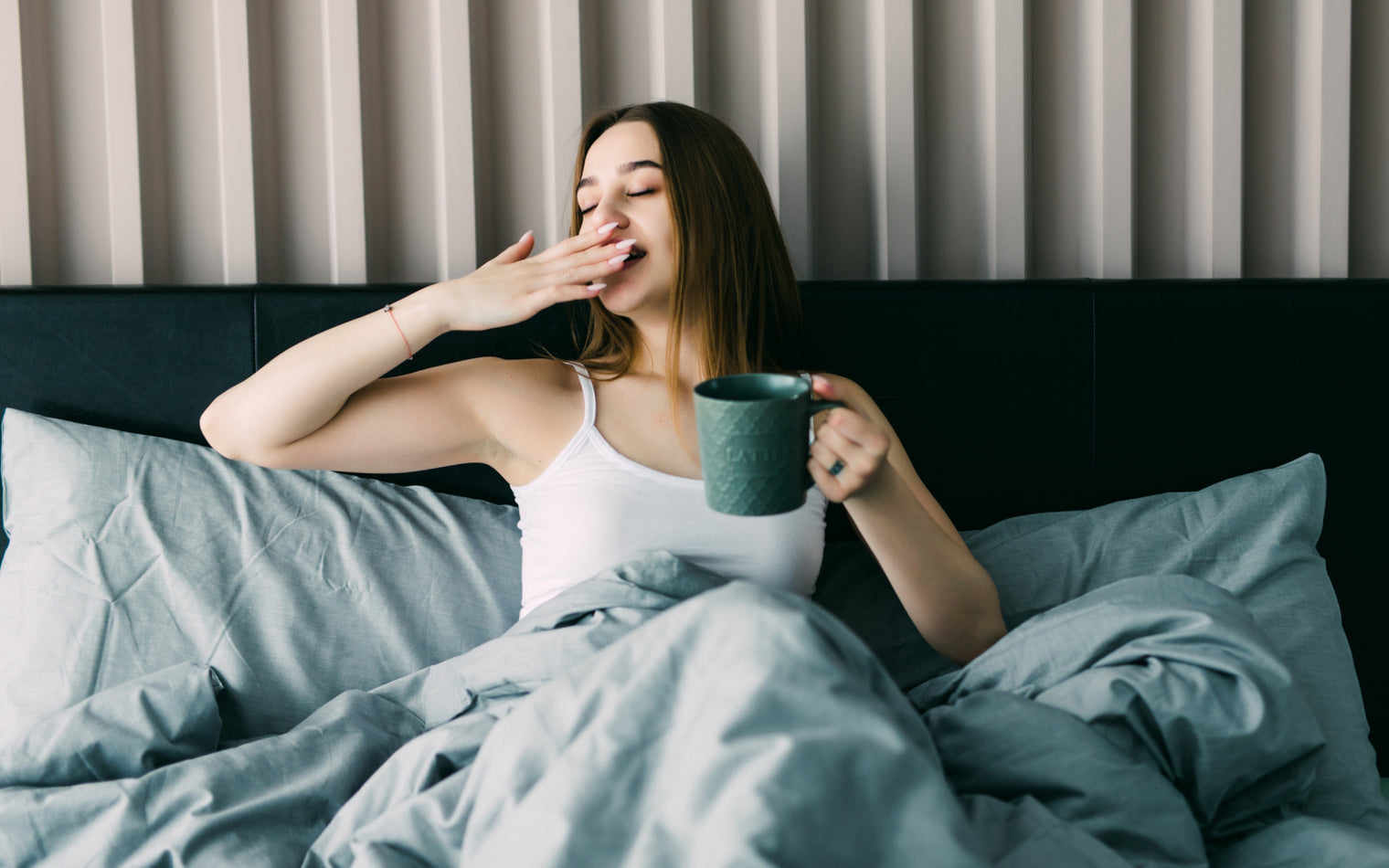Explore the complex relationship between coffee and sleep. Debunk myths and discover facts that will help you optimize your coffee consumption for better sleep.
Coffee and sleep: myths and facts
Coffee - for many of us, it's the start of the day. But how does our favorite stimulant actually affect our sleep? Surrounded by myths and misunderstandings, it's time to clarify some facts about the relationship between coffee and sleep.
Myth 1: Coffee in the evening always prevents sleep
While it is true that caffeine acts as a stimulant and can potentially disrupt sleep, the effects vary from person to person. Some people can drink coffee close to bedtime and still fall asleep without a problem. The half-life of caffeine is about 5 to 6 hours, meaning the time it takes for half of the caffeine to be out of your system can vary. People with faster caffeine metabolism are less affected by the sleep-disrupting effects.
Myth 2: Coffee is the enemy of good sleep
Not necessarily. When consumed in moderation, coffee does not necessarily have a negative impact on sleep. In fact, studies show that caffeine can improve performance and increase alertness without significantly affecting sleep quality for some people. The important thing here is to know your own limits and not to consume coffee in the late afternoon or evening hours.
Myth 3: Drink more coffee to stay awake
Although caffeine can increase alertness in the short term, excessive consumption throughout the day does not necessarily lead to better alertness. In fact, too much coffee can lead to restlessness, heart palpitations and, in the worst case, sleep disorders. So it is important to find a healthy balance.
Myth 4: Caffeine has the same duration of effect for everyone
It is a common misconception that caffeine lasts the same amount of time for everyone. In reality, the duration of caffeine's effects varies considerably between individuals, depending on factors such as age, caffeine habituation, and even whether certain medications are being taken. While some people experience the effects of caffeine wearing off after just a few hours, others may still feel the stimulating effects for many hours afterward.
Fact 1: Caffeine affects the sleep cycle
Caffeine can increase the time it takes to fall asleep, decrease the total time you sleep, and reduce sleep quality by reducing the amount of deep sleep you get. People who are sensitive to caffeine should therefore be especially careful about their coffee consumption.
Fact 2: The effect of caffeine varies from person to person
The way our bodies respond to caffeine is genetic. Some people process caffeine faster than others, meaning they are less susceptible to the sleep-disrupting effects of caffeine.
Fact 3: Caffeine can shift the circadian rhythm
Studies have shown that caffeine can affect the circadian rhythm, our internal clock. Consuming caffeine at certain times of the day, especially in the late afternoon or evening, can cause melatonin production to be delayed, which in turn makes it harder to fall asleep and disrupts the sleep cycle. This highlights the importance of timing when consuming coffee in relation to sleep.
Fact 4: Decaffeinated coffee is not always caffeine-free
Although decaffeinated coffee is considered a sleep-friendly alternative, it often still contains small amounts of caffeine. For people who are very sensitive to caffeine, even the small amount in decaffeinated coffee can be enough to interfere with sleep. It is therefore advisable to know your limits and, if necessary, avoid consuming decaffeinated coffee in the evening.
This is what you can take with you
The relationship between coffee and sleep is complex and varies from person to person. While it's important to understand the potential effects of caffeine on sleep, it's equally important to listen to your body and adjust your coffee consumption accordingly. By challenging myths and accepting facts, we can find a healthy balance between enjoying our favorite beverage and getting a good night's sleep.




